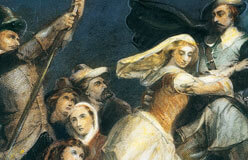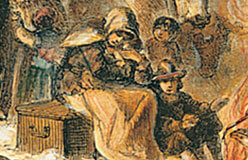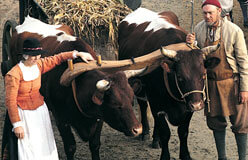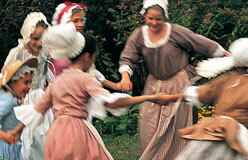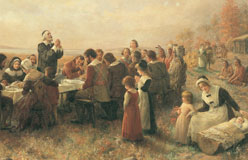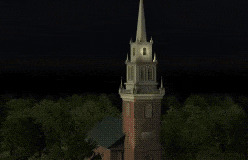Picture yourself on the dock of Plymouth, England, a green and pretty port town. It’s the year 1620. You are waving good-bye to your friends and relatives. Most likely, you’ll never see them again.
Like many Europeans of your day, you are boarding a ship for the New World. Your ship is called the Mayflower, and you will travel on it for two long months. Instead of sleeping on your soft bed, you sleep squeezed between other passengers on a hard wooden deck below the main deck. There is no hot water, so you wear the same dirty clothes day after day. You eat salt horse (salted beef, pork, or fish). Your jaws ache from biting into hard dry biscuits called hardtack. You can’t stand the sight of another dried bean or pea. Worst of all, storms batter the ship, soaking you, your clothes, and the awful food!
What made you come on this dangerous voyage? Freedom. Freedom to practice the religion of your choice. Freedom to believe what you believe, and not what someone tells you. Or maybe it was to seek adventure or the chance to start with nothing and work your way to riches. Whatever the reasons, many Europeans crossed an ocean of troubles to get to the New World. What happened to them? What did Native Americans think of these strange-looking creatures? Read on.
